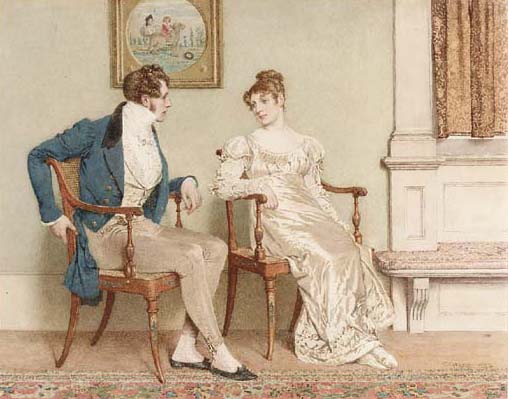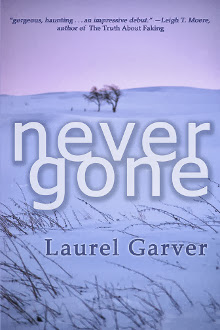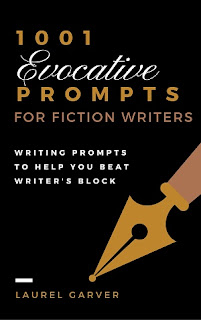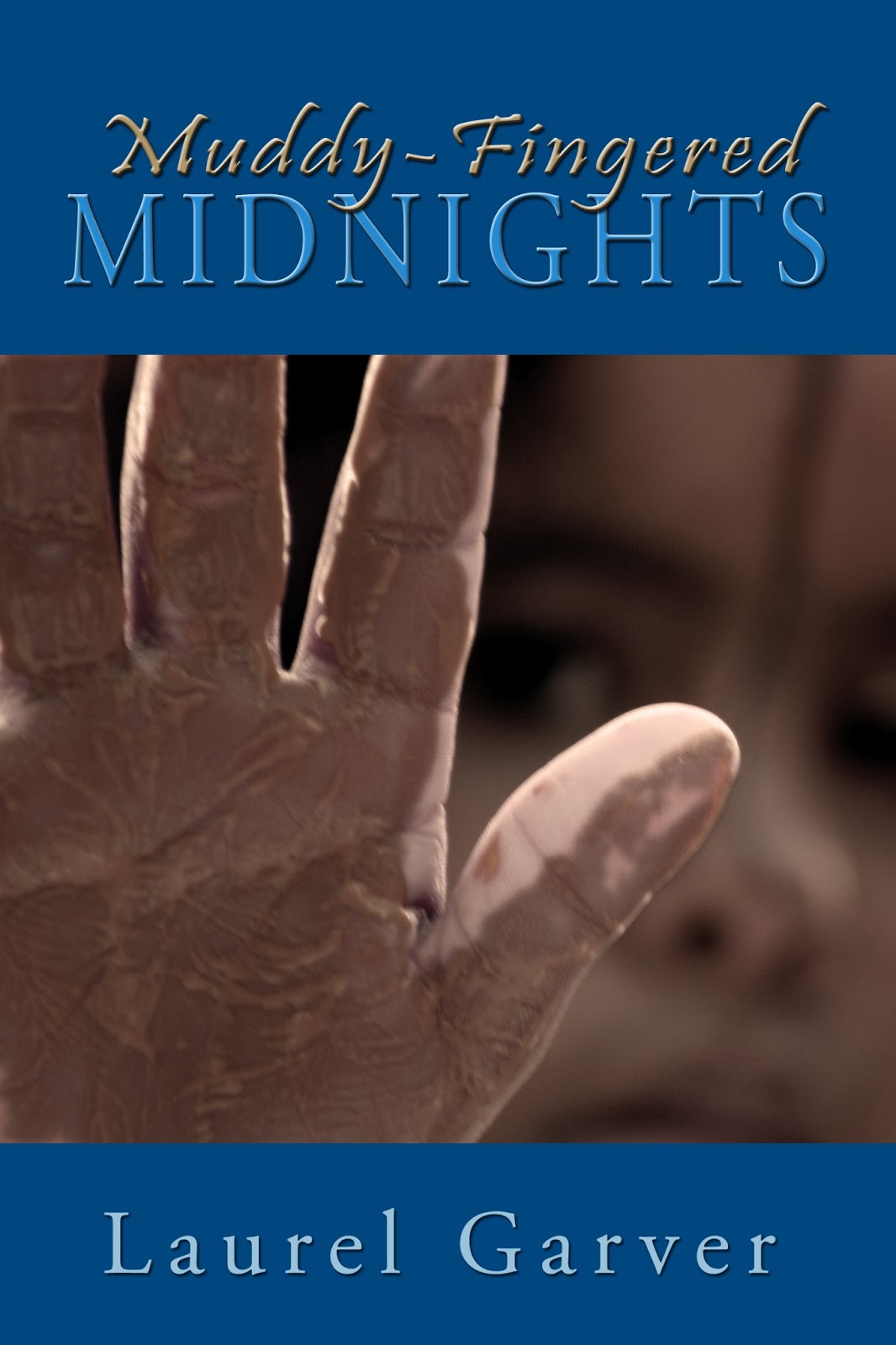Some writers are just the nicest people. So nice, in fact, that they write fiction that bores you to tears. Why is it that all nice all the time makes such terrible fiction?
Readers don't worry about the characters, aren't curious about what will happen to them.
Think about the cars you see pulled over on the highway. If you slow and see they've stopped for something innocuous-- to walk the dog or switch drivers--you'll speed up and go along your merry way. Nothing to see here.
If the pulled-over car has smoke billowing out of the engine and little kids howling in fear in the back seat, you'll slow down. Maybe even stop. Trouble! Will they be okay? Do they need help? Should the kids be taken a safe distance away?
Adversity, loss, mistakes, arguments, fights, dilemmas--these are the pieces of life that actually make it interesting. A healthy dose of each of these things added to every story will make for a gripping reading experience. Diffuse or remove every one, and you'll have a yawn-fest.
So how do you overcome a bad case of Nice Writer Syndrome?
Painful rejections and traumas from the past that bleed through into the present can become emotionally immobilizing. You might believe you're safer to clam up when others hurt you, or to flee when the going gets tough, but in the long run, these habits increase one's isolation and can simply reinforce a shaky sense of self worth.
In the Psychology Today article, "The Perils and Advantages of Being Conflict-Avoidant," Dr. John Amodeo notes:
Was there an influential person in your life who demanded complete compliance with rules and suppression of negative emotions? Rewarded only angelic behavior? Or conversely, was your childhood filled with such toxic people, you've walled off anything that reminds you of that time?
Perhaps it was an influential event in your life that cemented the idea that you must be sweetness and light all the time or something truly terrible will happen. Are you compensating for some past mistake or loss that threatens to overwhelm you with guilt or shame?
Perhaps you simply had poor role models of engaging in normal conflict and resolving it. Your family members might have stuffed their feelings until someone exploded--then everyone pretended nothing was happening. Or perhaps one family member with poor personal boundaries--or even a narcissistic, borderline or histrionic personality disorder--manipulated and emotionally blackmailed everyone in order to feel okay themselves, making authentic relationships impossible.
Not every conflict-avoidant person has a borderline personality parent who manipulated and emotionally blackmailed them to such a degree they'd rather throw themselves in front of a train than argue with someone. Extreme cases like this--and ones involving ongoing abuse--do call for professional help.
Others simply grew up with an authoritarian parent, and must re-parent themselves to a degree--gradually introducing themselves to freedoms that had been curtailed in childhood, and working to grow in self confidence.
Perhaps simply reading and doing exercises from a self-help book or joining an online forum will be enough to address some of the underlying issues.
Obviously, you'll be most easily able to study conflict at a remove, in fictional settings. Taking forays into viewing films you wouldn't normally watch because of the interpersonal conflict squirm factor can be a way to do "exposure therapy" like phobia patients often do--having small, controlled experiences getting close to the feared thing.
Start with comic conflicts, as found in films for the younger set, such as Diary of a Wimpy Kid. Freaky Friday and Mean Girls.
Move up to dramas with low-simmer conflict like The Spectacular Now, Metropolitan, and Persuasion
As you get more comfortable, take on films with explosive interpersonal conflict, like The Talented Mr. Ripley, Closer, and The Celebration/Festen (Danish with subtitles).
As you watch each film, consider what each character wants and why. Note also what each character values, and how those values clash with others and within itself.
All conflict has one of two positive roots: a desire or a value.
Before you consider any of the nasty stuff that scares you, answer these happier questions:
Chances are, too-nice writer, you do know these things about your character. After all, you like everyone to be happy.
Now comes the tough part--consider how these positives might be harmed, thwarted, or cause problems. Here are some helpful questions to do that:
Don't settle for easy answers here. See if you can come up with three to eight answers for each question. The longer you consider each question, the better the chance that you'll move past the cliches and tropes and come up with fresher, more interesting ideas.
Congratulations! You're on your way toward bravely tackling character conflicts.
Further reading:
James Scott Bell's Conflict and Suspense
Cheryl St. John's Writing with Emotion, Tension, and Conflict
Do you struggle with Nice Writer Syndrome? What steps will you take to tackle your conflict aversion?
Readers don't worry about the characters, aren't curious about what will happen to them.
Think about the cars you see pulled over on the highway. If you slow and see they've stopped for something innocuous-- to walk the dog or switch drivers--you'll speed up and go along your merry way. Nothing to see here.
If the pulled-over car has smoke billowing out of the engine and little kids howling in fear in the back seat, you'll slow down. Maybe even stop. Trouble! Will they be okay? Do they need help? Should the kids be taken a safe distance away?
Adversity, loss, mistakes, arguments, fights, dilemmas--these are the pieces of life that actually make it interesting. A healthy dose of each of these things added to every story will make for a gripping reading experience. Diffuse or remove every one, and you'll have a yawn-fest.
So how do you overcome a bad case of Nice Writer Syndrome?
Understand that running from conflict has serious drawbacks
Painful rejections and traumas from the past that bleed through into the present can become emotionally immobilizing. You might believe you're safer to clam up when others hurt you, or to flee when the going gets tough, but in the long run, these habits increase one's isolation and can simply reinforce a shaky sense of self worth.
In the Psychology Today article, "The Perils and Advantages of Being Conflict-Avoidant," Dr. John Amodeo notes:
There are notable pitfalls to avoiding potential conflict. We may conceal our genuine feelings, desires, and viewpoints because we’re afraid of how we’ll be seen or received by others. We shut down rather than take the risk to show our real self. Rather than be courageously authentic, we might cling to lies, deceptions, and omissions that make it difficult for people to trust us. We may withdraw emotionally or change the subject, fearing that if we reveal our honest feelings or wants, we’ll be rejected or shamed.Consider also this perspective for getting resolution (instead of the endless push/pull cycle): Stop Avoiding It: Why conflict is good for you.
Determine the source of the nice-at-all-costs message you have internalized
Was there an influential person in your life who demanded complete compliance with rules and suppression of negative emotions? Rewarded only angelic behavior? Or conversely, was your childhood filled with such toxic people, you've walled off anything that reminds you of that time?
Perhaps it was an influential event in your life that cemented the idea that you must be sweetness and light all the time or something truly terrible will happen. Are you compensating for some past mistake or loss that threatens to overwhelm you with guilt or shame?
Perhaps you simply had poor role models of engaging in normal conflict and resolving it. Your family members might have stuffed their feelings until someone exploded--then everyone pretended nothing was happening. Or perhaps one family member with poor personal boundaries--or even a narcissistic, borderline or histrionic personality disorder--manipulated and emotionally blackmailed everyone in order to feel okay themselves, making authentic relationships impossible.
Get appropriate help
Not every conflict-avoidant person has a borderline personality parent who manipulated and emotionally blackmailed them to such a degree they'd rather throw themselves in front of a train than argue with someone. Extreme cases like this--and ones involving ongoing abuse--do call for professional help.
Others simply grew up with an authoritarian parent, and must re-parent themselves to a degree--gradually introducing themselves to freedoms that had been curtailed in childhood, and working to grow in self confidence.
Perhaps simply reading and doing exercises from a self-help book or joining an online forum will be enough to address some of the underlying issues.
Become a student of conflict
Obviously, you'll be most easily able to study conflict at a remove, in fictional settings. Taking forays into viewing films you wouldn't normally watch because of the interpersonal conflict squirm factor can be a way to do "exposure therapy" like phobia patients often do--having small, controlled experiences getting close to the feared thing.
Start with comic conflicts, as found in films for the younger set, such as Diary of a Wimpy Kid. Freaky Friday and Mean Girls.
Move up to dramas with low-simmer conflict like The Spectacular Now, Metropolitan, and Persuasion
As you get more comfortable, take on films with explosive interpersonal conflict, like The Talented Mr. Ripley, Closer, and The Celebration/Festen (Danish with subtitles).
As you watch each film, consider what each character wants and why. Note also what each character values, and how those values clash with others and within itself.
Begin building conflicts
All conflict has one of two positive roots: a desire or a value.
Before you consider any of the nasty stuff that scares you, answer these happier questions:
- What does your protagonist want, crave, or long for?
- What does your protagonist value?
Chances are, too-nice writer, you do know these things about your character. After all, you like everyone to be happy.
Now comes the tough part--consider how these positives might be harmed, thwarted, or cause problems. Here are some helpful questions to do that:
- What are some reasons your protagonist does not yet have what he/she desires?
- What are some ways your protagonist might try to gain the desired thing that will fail?
- How does pursuing this desired thing thwart the desires of other story characters?
- How could satiating this desire have unintended negative consequences?
- In what way might his/her desire conflict with important values s/he holds?
- Do any of your protagonist's values potentially clash? How can you reveal it?
- How can you delve into the complications or clashes within one of his/her values?
- How might these values clash with the values of other characters?
Don't settle for easy answers here. See if you can come up with three to eight answers for each question. The longer you consider each question, the better the chance that you'll move past the cliches and tropes and come up with fresher, more interesting ideas.
Congratulations! You're on your way toward bravely tackling character conflicts.
Further reading:
James Scott Bell's Conflict and Suspense
Cheryl St. John's Writing with Emotion, Tension, and Conflict
Do you struggle with Nice Writer Syndrome? What steps will you take to tackle your conflict aversion?






















